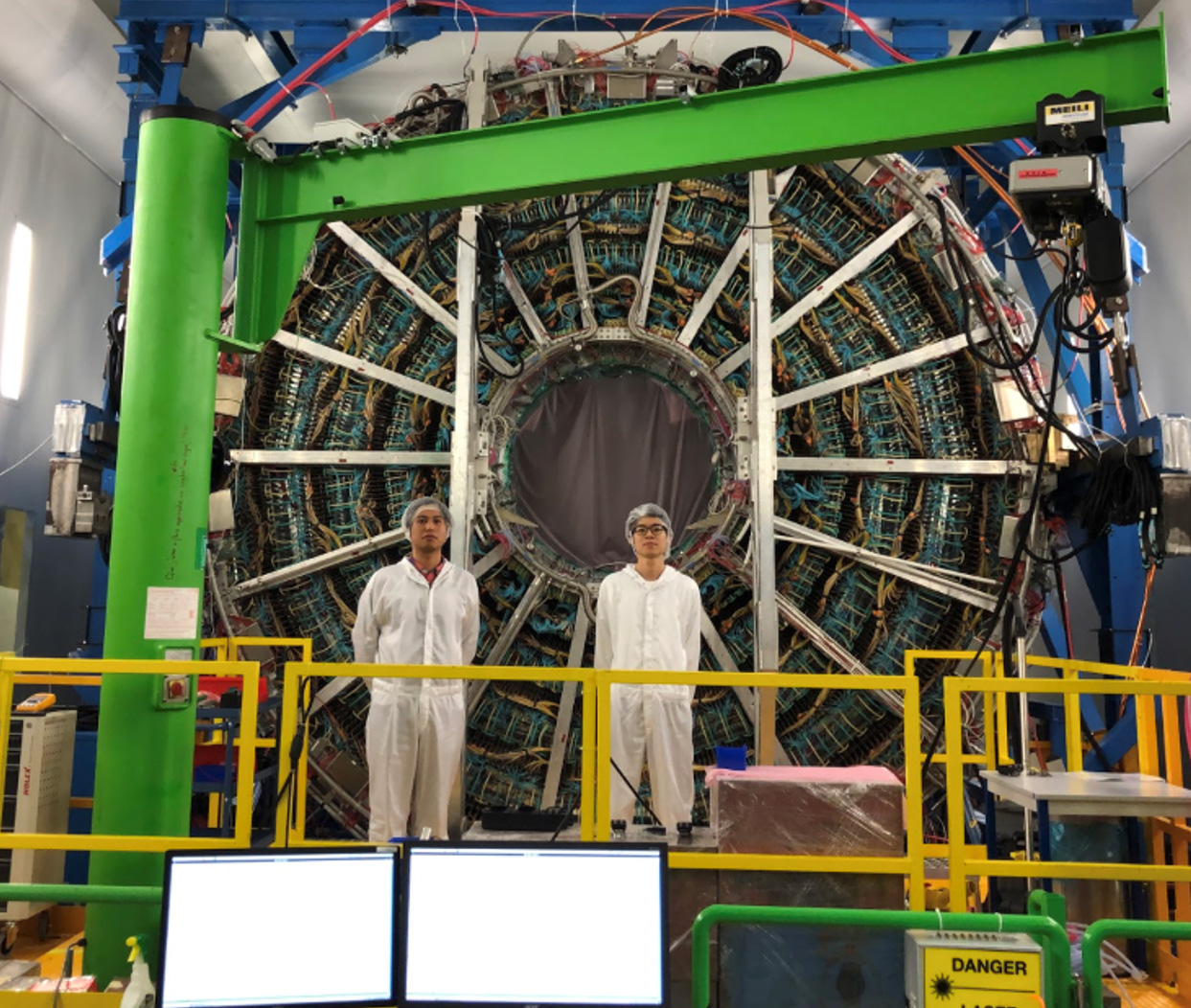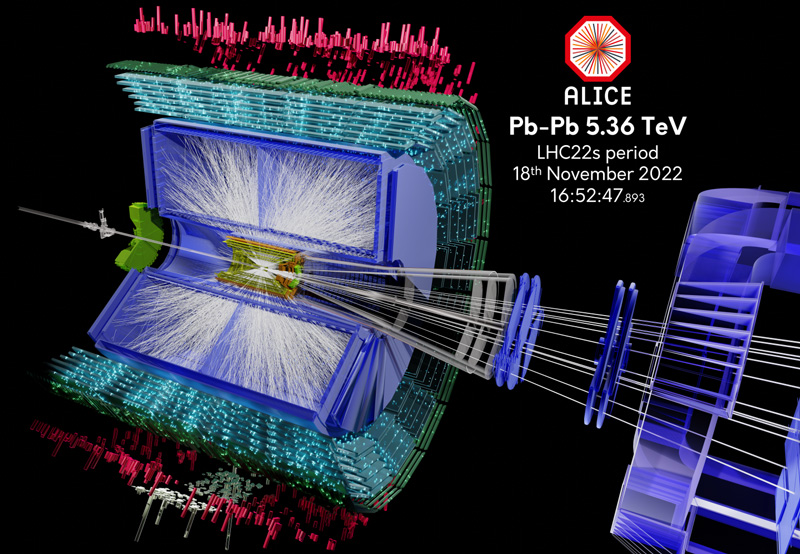Disclaimer: machine translated by DeepL which may contain errors.
International Collaboration to Tackle the Mysteries of the Early Universe
Taku Gunji, Associate Professor, Research Center for Nuclear Science
The Breakthrough Prize sponsored by the Breakthrough Foundation, funded by the founders of Google, Inc. and others, was announced on April 5, 2025, and four international collaborative experiments at the Large Hadron Collider (LHC) at CERN were jointly awarded in the basic physics category. The Center for Nuclear Study (CNS), Graduate School of Science, The University of Tokyo, is participating in the ALICE experiment.
The ALICE experiment is a large international collaboration of 1,894 members from 163 institutions in 40 countries, exploring the most extreme state of matter in human history, called "quark gluon plasma (QGP). This is a phase of matter that existed in the early universe immediately after the Big Bang, and is a unique state in which quarks and gluons, which are normally confined in protons and neutrons, are released in an ultra-high temperature and density state of about 1 trillion degrees.
CNS has participated in this project since 2006, leading the development, construction, and operation of the main track detector and the detector for electron identification. These state-of-the-art detectors have enabled precise measurements of heavy quarks, quarkonium, and electron pairs, and have contributed to the elucidation of the thermodynamic and transport properties of QGP. In the future, with more advanced experiments and more than 50 times more statistical data than before, the precise understanding of QGPs is expected to make a great leap forward. This research is a world-important exploration of the fundamental physics of quantum chromodynamics in the limit state. At the same time, it provides a valuable international environment for students and young researchers at CNS to engage in friendly competition with researchers from around the world, and serves as a training center for the next generation of physicists.
 CNS students participating in experiments with researchers from around the world at the site
CNS students participating in experiments with researchers from around the world at the site ALICE experiment capturing lead-lead nuclear collisions at the LHC
ALICE experiment capturing lead-lead nuclear collisions at the LHC

